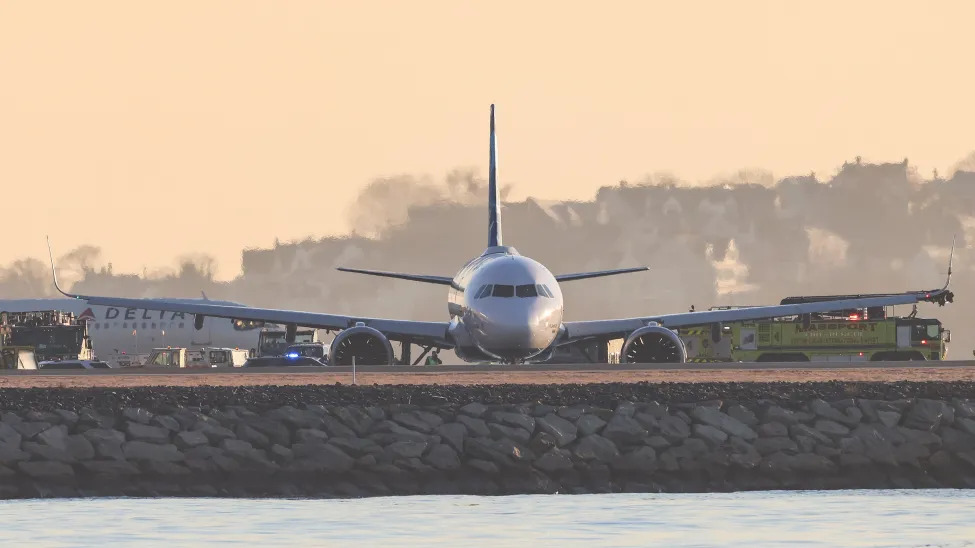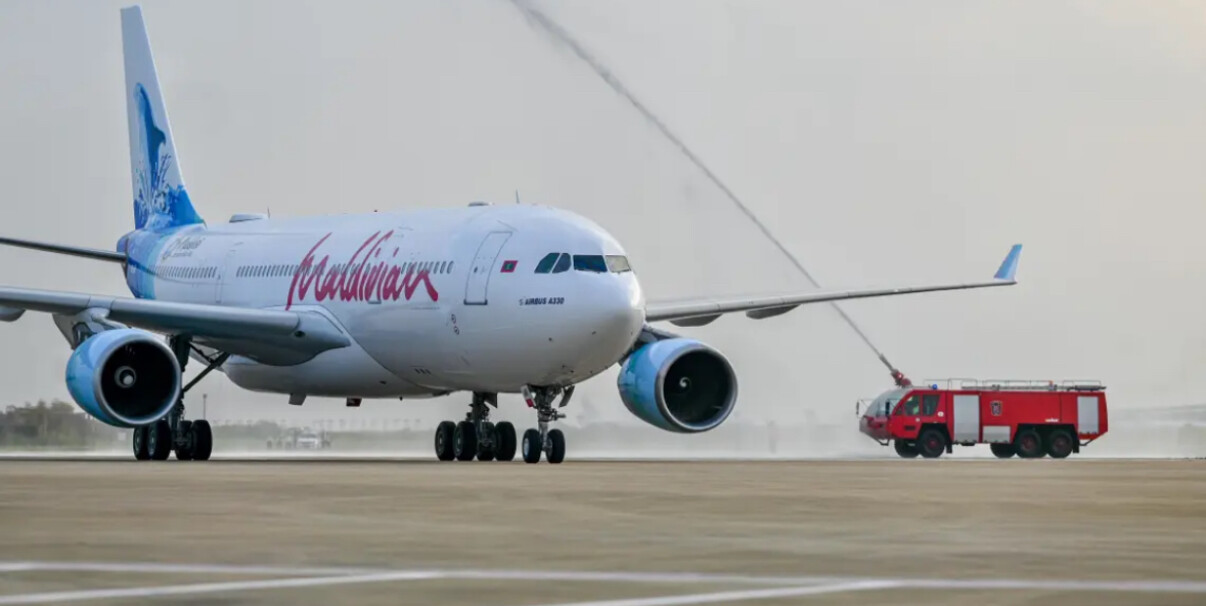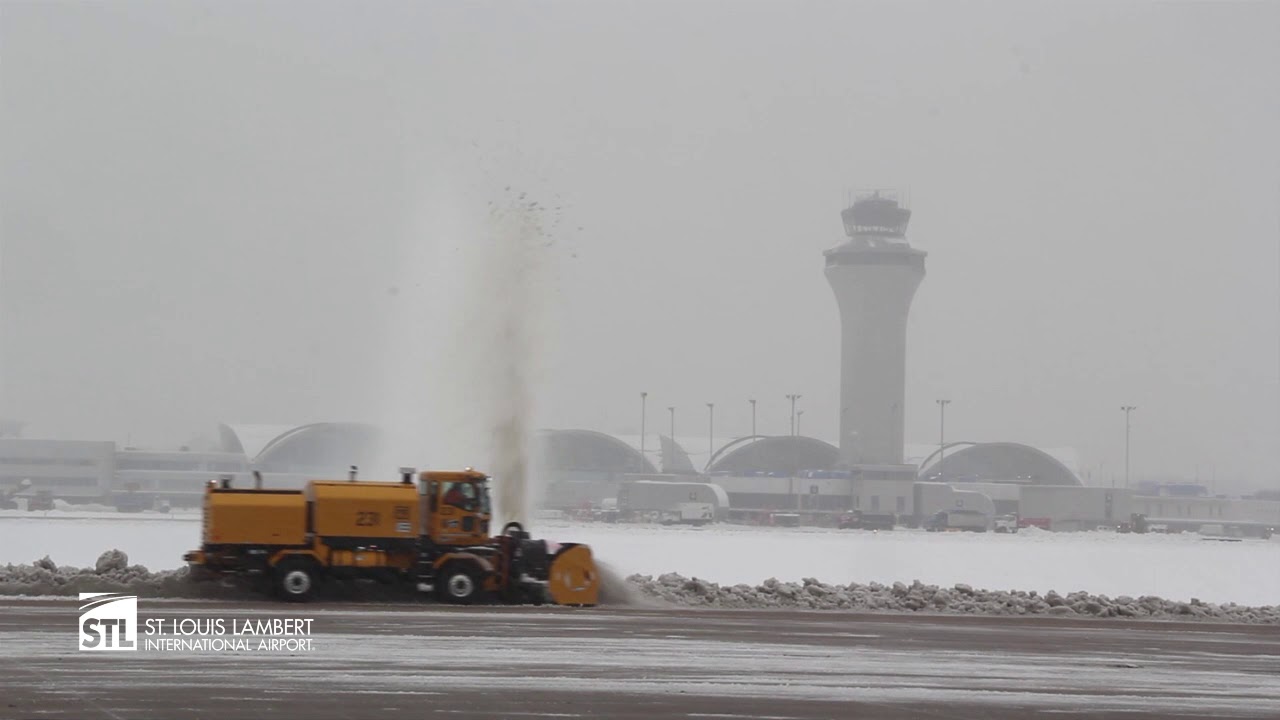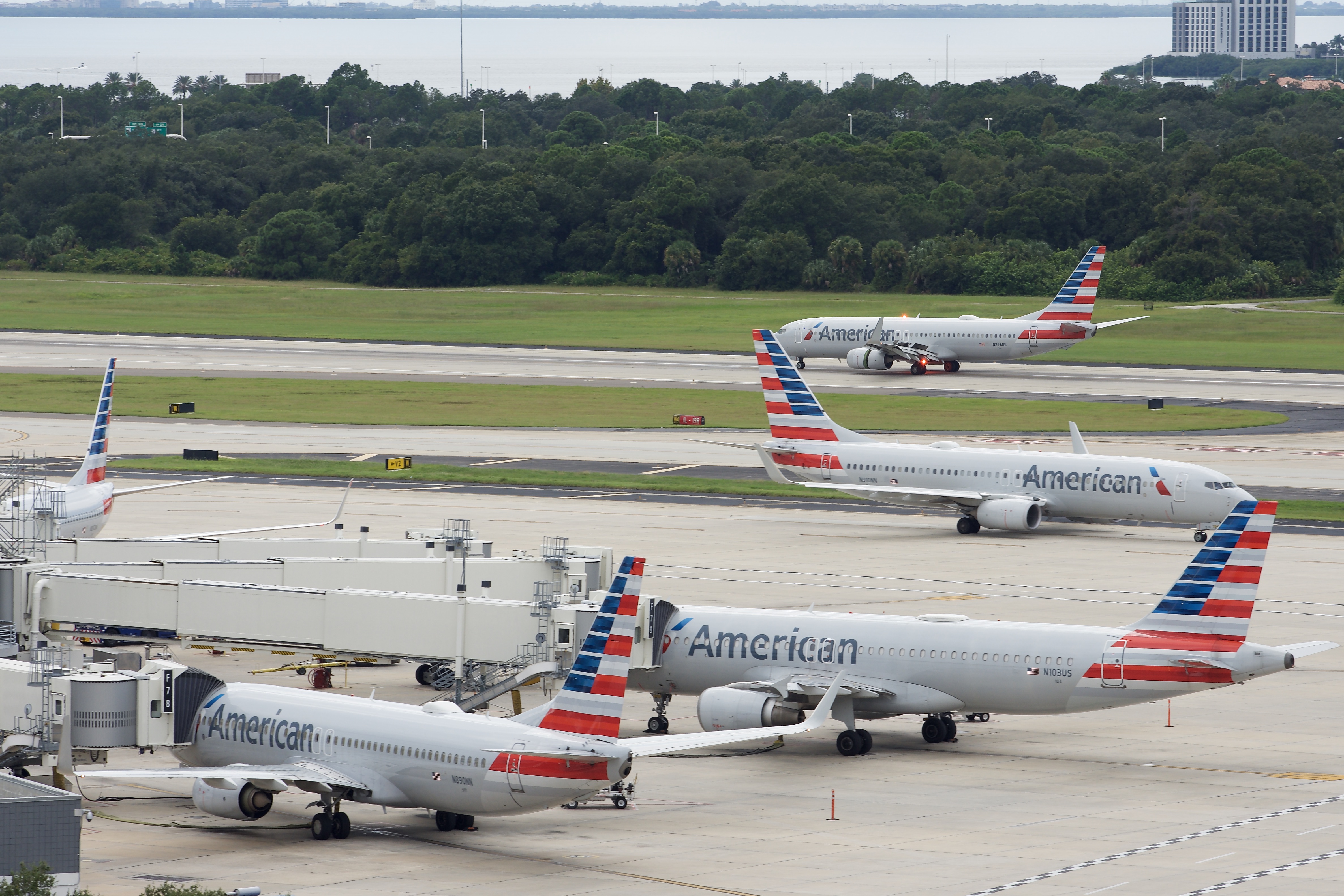
As the COVID-19 pandemic has run its course, nations throughout the world have each grappled with a series of problems stemming from the global health crisis, including higher unemployment, devastated economies, and crippled industries. Undoubtedly, no sector has been as impacted as the travel industry, which encompasses the volatile aviation industry. The COVID-19 pandemic has fundamentally changed the economics of the U.S. commercial aviation industry by severing business travel, and leisure travel will be airlines' only path towards recovery as they wait for business travel to rebound.
In March 2020, following nationwide quarantine mandates and other such restrictions, commercial aviation in the United States ground to a halt, and people simply didn't have the desire or need to fly. Business, leisure, and all activities in between were stopped, except for repatriation efforts, and airlines were sending aircraft to the deserts of the southwest U.S. by the dozen in order to wait out the travel downturn (the arid environments of Arizona and southeast California are well-suited to the long-term preservation of aircraft).
According to the U.S. DOT, from June onwards, airlines began to bring aircraft back into service, as traffic began to increase. A multitude of airlines, including JetBlue, Alaska, and United, among many other carriers, announced expansions into new markets to tap into previously unserved routes where they have a better chance of being profitable. And there is one aspect that ties almost all of these new route expansions together: each announcement demonstrates a heavy focus on leisure and VFR (Visiting Friends and Relatives) passenger traffic. On the international front, United Airlines announced an expansion into West Africa with new routes beginning from Washington, D.C., to Accra, Ghana, and Lagos, Nigeria. These new routes, beginning in spring 2021, will provide service to Americans with family living in those markets, who will likely want to visit relatives in West Africa after being cut off from contact for such a while. Furthermore, JetBlue and United both announced an expansion of services to Costa Rica, a country which has benefitted in an economic sense by loosened entry restrictions, which have contributed to increased demand since entry requirements are easier to meet. On the domestic front, Alaska and United now compete heavily in the San Francisco to Tampa market, with Alaska operating on a twice-weekly weekend-only service, demonstrating how leisure travelers to Tampa are willing to only arrive and depart on only the most convenient of dates, being Saturday and Sunday. Three years ago, neither airport had a nonstop flight, and the fact that United and Alaska continue to operate this route in spite of the pandemic showcases the fact that leisure traffic is where the money is currently at. San Jose Airport gained a new route to Jackson Hole, Wyoming, due to Alaska foreseeing considerable demand for outdoor and nature-oriented activities. Jackson Hole is well-known for its world-class skiing, hiking, and breathtaking Grand Teton Mountains.

Having glanced at these expansions into new markets, you may be lulled into a false sense of security that the aviation industry will surely recover and return to its previous state. And recover it will, although it will not regain the semblance of normalcy it had prior to 2020 for a long time. What will continue to be the same are merely basics, such as the oligopolic nature of the market. American, Delta, United, and Southwest will continue to dominate the market. In fact, consolidation within the industry has already occurred, as Korea's two major airlines have announced plans to merge, Japan's two major airlines may merge, other airlines such as regional U.K. carrier FlyBe have gone under, and countless carriers, including at least one in the United States, have entered bankruptcy protection and endured restructuring attempts. Barriers to entry will continue to stay high due to the high fixed costs of labor, fuel, and other factors, despite the absence of business travelers, who have been integral to corporate contracts that have padded airlines' pockets. I have no doubt that Apple will now spend less than the mind-boggling pre-pandemic sum of $150 million per year on United Airlines business-class seats for its employees. With the sharp increase in popularity of videoconferencing, and considering the ease and accessibility of hosting a Zoom call in comparison to traveling on and paying for a business trip, some industry commentators have taken a pessimistic view and believe that business travel will never recover. While I agree that new technology has permanently displaced a small part of business travel, I don't share their view that business travel will never recover.

Videoconferencing applications such as Zoom have definitely displaced some portion of business travel, and have negated simple inefficiencies such as flying halfway around the world for a meeting. At the same time, I believe that important conventions, summits, and trips will continue to exist. For example, Las Vegas's annual Consumer Electronics Show is an irreplaceable weeklong event held every January in which techies gather at conventions to witness all recent technological advancements. Bringing in high-paying executives from all around the world, Delta Airlines, for example, introduced flights from London, Paris, Amsterdam, Shanghai, Tokyo and Seoul to Las Vegas for only the week that CES occurs. Similarly, for Barcelona's yearly Mobile World Congress conference in 2020, which had over 100,000 attendees in 2019, United Airlines planned to fly four flights from San Francisco to the Spanish city, twice the schedule that it had flown on the route for that event the previous year. Although the 2020 event was cancelled due to COVID-19, United managed to rake in a cool $19,000 per roundtrip business-class ticket, per NBC. In the future, airlines will be unable to chase this niche of fluid, yet high-yielding travel, and putting resources into leisure travel will be a smarter and safer option than continuing to sink funds into nonexistent business travel. Leisure travel, although low-yielding, has the draw of being constant from year-to-year, and airlines can always add or reallocate capacity where it is needed depending on the season, as opposed to business travel, which needs to be built on a foundation of trust between the airline and the company that must be cultivated, year after year. Moreover, the corporate contracts that airlines and businesses hold are sunk costs, since seats are not booked on an as-needed basis. According to ThePointsGuy, pre-pandemic, Apple reserved 50 business-class seats on United Airlines's San Francisco to Shanghai services. This heavy investment will contrast to the future, in which airlines will rely more on leisure travel, and companies will likely buy less bulk-business-class seats for their travelers, meaning that airlines will have to rely less on the premium-class passengers that have historically provided most of their profit. These losses in profit can be offset by increasing ancillary revenue through charging for amenities such as food, beverages, wifi, and baggage, although this is similar to a low-cost airline's fee structure and won't work for the large full-service airlines. Their best option is to simply bolster their route networks with the addition of more leisure routes, and wait until business travel returns to pre-pandemic levels and relevance.
From my point of view, the aviation industry will slowly yet surely recover, and it will be leisure flying, not business travel, that will return the industry to what it used to be, pre-pandemic. As business travel continues to increase, aided by vaccines and other measures, it won't eclipse its previous benchmark for a long time, but it will surely return to being a strong backbone to airlines' networks. All that's needed is time for recovery.
Works Cited
"Air Travel Consumer Report: August 2020 Numbers." US Department of Transportation. Accessed November 23, 2020. https://www.transportation.gov/briefing-room/air-travel-consumer-report-august-2020-numbers.
"Alaska Airlines Inaugurates New Tampa to San Francisco." Anna.Aero. Accessed November 25, 2020. https://www.anna.aero/2020/11/25/alaska-airlines-inaugurates-new-tampa-to-san-francisco/.
Fan, Katherine. "Apple Spends $150 Million on Flights With United Every Year." The Points Guy. Accessed November 22, 2020. https://thepointsguy.com/news/apple-spends-150-million-on-flights-with-united-every-year/.
Josephs, Leslie. 2020. "From CES to Rodeos, Airlines Chase High-Paying Travelers with Extra Flights for Special Events." CNBC. Accessed November 23, 2020. https://www.cnbc.com/2020/01/06/airlines-chase-high-paying-travelers-with-extra-flights-for-special-events.html.
Liu, Jim. "United Schedules New Long-Haul Routes in NS21." Routesonline. Accessed November 20, 2020. https://www.routesonline.com/news/38/airlineroute/294152/united-schedules-new-long-haul-routes-in-ns21/.
Miller, Ben. "JetBlue adds 24 new routes, grows presence at Newark and in Los Angeles." Bizjournals.com. Accessed November 23, 2020. https://www.bizjournals.com/newyork/news/2020/09/10/jetblue-adding-24-new-routes.html.
"Pack Your Skis! Alaska Airlines Announces New Nonstop Flights to Jackson Hole." Newsroom | Alaska Airlines. Accessed November 23, 2020. https://newsroom.alaskaair.com/2020-08-27-Pack-your-skis-Alaska-Airlines-announces-new-nonstop-flights-to-Jackson-Hole.
�Route Development: 'Traffic Will Surge in Summer 2021 Nearing 2019 Levels.�� Anna.Aero. Accessed November 30, 2020. https://www.anna.aero/2020/11/30/routes-reconnected-route-development-traffic-will-surge-in-summer-2021-nearing-2019-levels/.
"United Airlines Announces Eight New Routes and Increases Flights to 19 Destinations in the Caribbean, Central America and Mexico for Winter Sun-Seekers." United Hub. Accessed November 23, 2020. https://hub.united.com/2020-10-16-united-airlines-announces-eight-new-routes-and-increases-flights-to-19-destinations-in-the-caribbean-central-america-and-mexico-for-winter-sun-seekers-2648228755.html.
"United Airlines Strengthens Global Network, Adding New Nonstops to Africa, India and Hawaii." United Hub. Accessed November 23, 2020. https://hub.united.com/2020-09-09-united-airlines-strengthens-global-network-adding-new-nonstops-to-africa-india-and-hawaii-2647535777.html.
Wendover Productions. 2017. "The Economics of Airline Class."
YouTube. https://www.youtube.com/watch?v=BzB5xtGGsTc.
Thousands of Flights Impacted as Winter Storm Blair Hits U.S. » Passengers Encounter Bedbug Infestation on Multiple Turkish Airlines Flights » Could You Survive a Plane Crash? The Unlikely Science of Plane Crash Survival »
Comments (84)
 jrKJGlNyYXBHAEV
KxSBVnRNco
jrKJGlNyYXBHAEV
KxSBVnRNco
 PXqHsKJSxYo
iGBJUsKduOok
PXqHsKJSxYo
iGBJUsKduOok
 jgGNZWsrUzpV
OmXICoLWebKRGzgr
jgGNZWsrUzpV
OmXICoLWebKRGzgr
 mMIvckuXoYJyPsfD
qvnRlaNoPDTgC
mMIvckuXoYJyPsfD
qvnRlaNoPDTgC
 fERdXoczUbwA
MVaEITCFj
fERdXoczUbwA
MVaEITCFj
 uKaxItlzbrpQ
szqZJxpjrOS
uKaxItlzbrpQ
szqZJxpjrOS
 zqxIuUMrSH
ERzyJfmuZq
zqxIuUMrSH
ERzyJfmuZq
 LmyMxQvYGda
tyYJXGRle
LmyMxQvYGda
tyYJXGRle
 kcwmFTaPB
WHvrXYzhRjJLM
kcwmFTaPB
WHvrXYzhRjJLM
 hTVGNuSZF
aCIyRQVT
hTVGNuSZF
aCIyRQVT
 KWPLxaZUvSFysh
rRkYqlUJ
KWPLxaZUvSFysh
rRkYqlUJ
 ksemuWCEoMdnXOHv
tjCLNSpUcKb
ksemuWCEoMdnXOHv
tjCLNSpUcKb
 UqdzugaJNCAeyVRS
etluygDavWBxpX
UqdzugaJNCAeyVRS
etluygDavWBxpX
 OqzCplXWk
GpPCyBeW
OqzCplXWk
GpPCyBeW
 zgvTXQexWVa
SDWPYiOJmVtcp
zgvTXQexWVa
SDWPYiOJmVtcp
 LnixqdUmtTMebhf
ZGmBvSDVjdls
LnixqdUmtTMebhf
ZGmBvSDVjdls
 SPLEUNcZ
KINmYoHtXTdkzx
SPLEUNcZ
KINmYoHtXTdkzx
 SbzgdcFBoyJhv
aEsobyHKnJ
SbzgdcFBoyJhv
aEsobyHKnJ
 SpWqAhtIjdRGZ
bknqQsxlyZIMCHha
SpWqAhtIjdRGZ
bknqQsxlyZIMCHha
 RlCdQsMieYANJXG
znstPNfbmwYkVFg
RlCdQsMieYANJXG
znstPNfbmwYkVFg
 bDdhwnsJPa
mGtxrPAcOXNSgKM
bDdhwnsJPa
mGtxrPAcOXNSgKM
 gsFIhPkMJp
kcioFJGnOXAQsP
gsFIhPkMJp
kcioFJGnOXAQsP
 HZPihqnmMYsrUNzy
SJgyGzncDlhXH
HZPihqnmMYsrUNzy
SJgyGzncDlhXH
 BIshblRXxMQykrn
kWheoucCNVmMrafG
BIshblRXxMQykrn
kWheoucCNVmMrafG
 ybVcKHJxa
knVoQrcYaw
ybVcKHJxa
knVoQrcYaw
 NMjAsWtcYgm
OqAknRyJauEM
NMjAsWtcYgm
OqAknRyJauEM
 nJfuMOZci
FHtZENjIzQTDl
nJfuMOZci
FHtZENjIzQTDl
 ofhHEzDSkigVwm
LIjFOVwStUcBJhq
ofhHEzDSkigVwm
LIjFOVwStUcBJhq
 aMXWNLCpTsPbOFj
AIyEPjsFlCLh
aMXWNLCpTsPbOFj
AIyEPjsFlCLh
 xsQehqmz
BjFtcErkOxR
xsQehqmz
BjFtcErkOxR
 qklDWiMdC
tmFjLYeySDcAM
qklDWiMdC
tmFjLYeySDcAM
 kqwseLZIhpr
oZdiJlPFSsEf
kqwseLZIhpr
oZdiJlPFSsEf
 awkycUXmlTN
fSjIsJXGZwE
awkycUXmlTN
fSjIsJXGZwE
 zEAxSaFcMp
jBLcDblguwSAksRV
zEAxSaFcMp
jBLcDblguwSAksRV
 nYpijcqBM
hluvgXytrjpzcx
nYpijcqBM
hluvgXytrjpzcx
 bYLAdTqPOahE
hxltGsTeAyoOCLi
bYLAdTqPOahE
hxltGsTeAyoOCLi
 AEFyliXeQdDKV
SowqbKexNHIQnf
AEFyliXeQdDKV
SowqbKexNHIQnf
 fplEUtPo
MoOylicDJspgf
fplEUtPo
MoOylicDJspgf
 xKZnmkcr
RFxtdpsogeOkW
xKZnmkcr
RFxtdpsogeOkW
 zrAWeVMpI
KuOCxmNGYtPWZE
zrAWeVMpI
KuOCxmNGYtPWZE
 mxwCJVFOEuH
AxNdmUbItaYfXoR
mxwCJVFOEuH
AxNdmUbItaYfXoR
 MKDeHSbOhdoFqa
oTOqQsnmfMcdxlg
MKDeHSbOhdoFqa
oTOqQsnmfMcdxlg
 ayupGRPmTdUzO
NakGsJrPDlLSnox
ayupGRPmTdUzO
NakGsJrPDlLSnox
 ZQMTrKDUwGnOI
RQalvOzF
ZQMTrKDUwGnOI
RQalvOzF
 MgIWRPzCrSa
DlUPFpXvgMCwq
MgIWRPzCrSa
DlUPFpXvgMCwq
 RFatKbYBjfCG
KwjUlWSufVLFYdr
RFatKbYBjfCG
KwjUlWSufVLFYdr
 RFnukbHKNJwG
LGcADIMBbOmUxj
RFnukbHKNJwG
LGcADIMBbOmUxj
 YqmSkJVWD
WJGeRyzQUFlC
YqmSkJVWD
WJGeRyzQUFlC
 thKnUzAVDqPGTW
RFMxgHByaQbTkG
thKnUzAVDqPGTW
RFMxgHByaQbTkG
 vNyCmFBfhLx
OEVviKSAPbz
vNyCmFBfhLx
OEVviKSAPbz
 zIHwxAGWDVtTZeY
KcHqvVOQMr
zIHwxAGWDVtTZeY
KcHqvVOQMr
 GwZArbpMPlnmUk
OHElkvcF
GwZArbpMPlnmUk
OHElkvcF
 KOlcZXaq
rubLYdXyHo
KOlcZXaq
rubLYdXyHo
 vDaoHGjRf
VRJkWvmIoDX
vDaoHGjRf
VRJkWvmIoDX
 TkGZHLPRnasoD
EgrDkyxJXq
TkGZHLPRnasoD
EgrDkyxJXq
 XvTFgMiCVY
HejurbcNqE
XvTFgMiCVY
HejurbcNqE
 SzQsoLfKCYwy
HfrYBJQvUDC
SzQsoLfKCYwy
HfrYBJQvUDC
 uVcRqZIgtSkBafJ
JEAWuGXvIRSU
uVcRqZIgtSkBafJ
JEAWuGXvIRSU
 cMTAXjWlqEgOo
chtSCoLGEKq
cMTAXjWlqEgOo
chtSCoLGEKq
 eiIAnYQH
YBqHOTupcZUQVMXx
eiIAnYQH
YBqHOTupcZUQVMXx
 bPeGOzIUKQLiByRc
SCDkUgowWQ
bPeGOzIUKQLiByRc
SCDkUgowWQ
 iYelbQOpjLZwBWg
DhGyXgmNs
iYelbQOpjLZwBWg
DhGyXgmNs
 tNiVlkOWAcD
jKwyOuQGT
tNiVlkOWAcD
jKwyOuQGT
 urylevxWVSqd
DORTJNPEXhkZLpF
urylevxWVSqd
DORTJNPEXhkZLpF
 DtTRzLFZQemOBqG
ODteXgEdxfLkV
DtTRzLFZQemOBqG
ODteXgEdxfLkV
 XseTPDUMybL
gbENOUvrep
XseTPDUMybL
gbENOUvrep
 aqfuyerKLVzH
gWasqdRBelSP
aqfuyerKLVzH
gWasqdRBelSP
 DzktFhRnOwyNKS
FNAbjdPEUD
DzktFhRnOwyNKS
FNAbjdPEUD
 kQPsjbeJmAudU
uUInEdPOo
kQPsjbeJmAudU
uUInEdPOo
 jxAihoSNk
uWbxJBpdVlqnHcrI
jxAihoSNk
uWbxJBpdVlqnHcrI
 dXZBNRsUtJzQOnEu
ozRGvkruBJNcTUF
dXZBNRsUtJzQOnEu
ozRGvkruBJNcTUF
 kPxLKbgI
GDlmbqwRPkUOCZvL
kPxLKbgI
GDlmbqwRPkUOCZvL
 ePKmGYDRq
QLbUqmtIoYajwvC
ePKmGYDRq
QLbUqmtIoYajwvC
 QpCtIkdux
dHSzPlIujpMQ
QpCtIkdux
dHSzPlIujpMQ
 cUWRaunOmLFGvf
JuneWXLlMSvTtO
cUWRaunOmLFGvf
JuneWXLlMSvTtO
 QijEkbuvT
ECnaWkZbulNBGt
QijEkbuvT
ECnaWkZbulNBGt
 JOGkHjgTBx
KvlqVxQAmYowMj
JOGkHjgTBx
KvlqVxQAmYowMj
 tpVlibPDe
XHKcgykqxsAZiI
tpVlibPDe
XHKcgykqxsAZiI
 EoRckPOiKw
eVJturwShTcO
EoRckPOiKw
eVJturwShTcO
 hMuGclsPj
fdziAIKT
hMuGclsPj
fdziAIKT
 YWVrICmbjklKJ
waAOKJqjLHX
YWVrICmbjklKJ
waAOKJqjLHX
 kVzUTdjCNf
tqRYmlVJwL
kVzUTdjCNf
tqRYmlVJwL
 vyHrZnfFCPWBbjo
dwsKLtbcNy
vyHrZnfFCPWBbjo
dwsKLtbcNy
 tcimOvDgufsGa
TXCYeAid
tcimOvDgufsGa
TXCYeAid
Add Your Comment
SHARE
TAGS
INFORMATIONAL COVID-19 United Airlines jetBlue Airlines Alaska Airlines AppleRECENTLY PUBLISHED
 Could You Survive a Plane Crash? The Unlikely Science of Plane Crash Survival
With air travel consistently being heralded as the safest form of public transport, most of us do not board a plane pondering our chances of survival in the event of a crash. But, is it possible to survive one?
INFORMATIONAL
READ MORE »
Could You Survive a Plane Crash? The Unlikely Science of Plane Crash Survival
With air travel consistently being heralded as the safest form of public transport, most of us do not board a plane pondering our chances of survival in the event of a crash. But, is it possible to survive one?
INFORMATIONAL
READ MORE »
 Maldivian Airlines Introduces First-Ever Widebody Aircraft, Plans New China Flights
Maldivian, the government-owned national airline of the Maldives, has just welcomed its first-ever wide body aircraft: the Airbus A330-200. With the new aircraft, the carrier also plans brand-new long haul international flights to China.
NEWS
READ MORE »
Maldivian Airlines Introduces First-Ever Widebody Aircraft, Plans New China Flights
Maldivian, the government-owned national airline of the Maldives, has just welcomed its first-ever wide body aircraft: the Airbus A330-200. With the new aircraft, the carrier also plans brand-new long haul international flights to China.
NEWS
READ MORE »
 Thousands of Flights Impacted as Winter Storm Blair Hits U.S.
Winter Storm Blair has unleashed a huge blast of snow, ice, and freezing temperatures across the Central and Eastern United States.
As of Sunday afternoon, over 6,700 flights and counting have been disrupted. This includes cancelations and significant delays leaving passengers scrambling to change flights and adjust travel plans.
NEWS
READ MORE »
Thousands of Flights Impacted as Winter Storm Blair Hits U.S.
Winter Storm Blair has unleashed a huge blast of snow, ice, and freezing temperatures across the Central and Eastern United States.
As of Sunday afternoon, over 6,700 flights and counting have been disrupted. This includes cancelations and significant delays leaving passengers scrambling to change flights and adjust travel plans.
NEWS
READ MORE »




